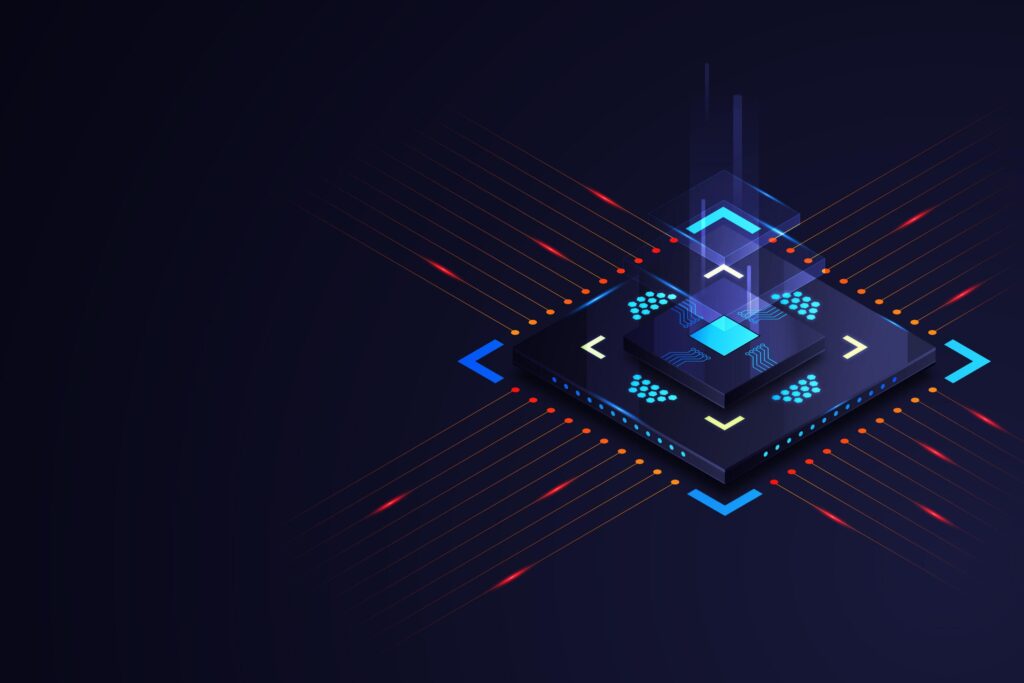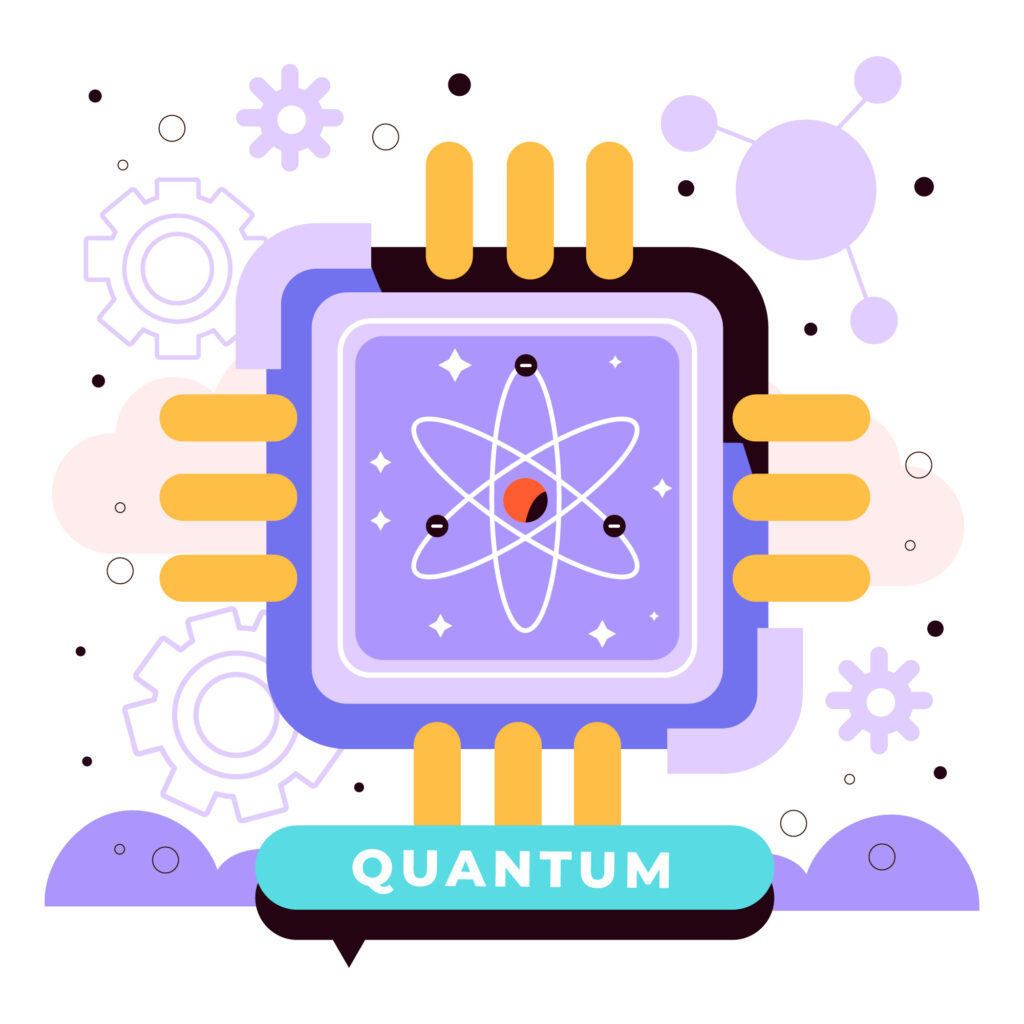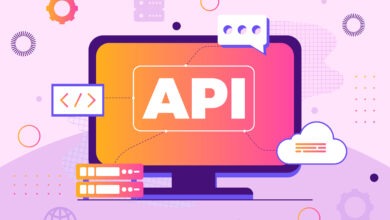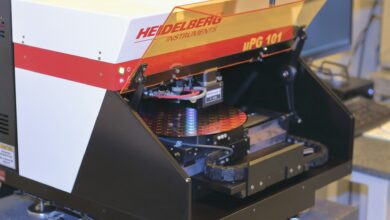What is Quantum Computing : New Update

Imagine a realm where the limits of computational power are shattered, unveiling a new dimension of possibilities. This is the world of Quantum Computing. As we stand on the precipice of a technological revolution, Quantum Computing promises to transcend the boundaries of classical computing. By harnessing the enigmatic principles of quantum mechanics, it offers unparalleled speed and efficiency. Whether it’s decoding complex algorithms or simulating intricate systems, the impact of Quantum Computing is poised to reshape industries and accelerate innovation. Dive into the fascinating world of Quantum Computing and discover how this groundbreaking technology is set to transform our future.
Table of Contents
What is Quantum Computing?

Quantum Computing represents a groundbreaking leap from classical computation by harnessing the principles of quantum mechanics. Unlike traditional computers, which use binary bits to represent data as either 0 or 1, Quantum Computing utilizes quantum bits, or qubits, which can exist in multiple states simultaneously due to superposition. This capability, combined with entanglement—where qubits become interlinked and influence each other instantaneously—enables Quantum Computing to process vast amounts of information at unprecedented speeds. This revolutionary approach holds the potential to solve complex problems intractable for classical systems, offering transformative possibilities across various fields.
Why Do We Need Quantum Computers?
- Complex Problem Solving: Quantum Computing is essential for tackling problems that are computationally prohibitive for classical computers. Its ability to process multiple possibilities simultaneously enables solutions for complex challenges in fields like optimization and simulation.
- Enhanced Efficiency: Unlike traditional computers that operate sequentially, Quantum Computing leverages superposition and entanglement to perform calculations in parallel. This drastically increases efficiency, particularly for tasks involving large datasets or intricate algorithms.
- Advancements in Research: Quantum Computing can revolutionize research by simulating molecular structures and chemical reactions with unprecedented accuracy. This capability accelerates discoveries in pharmaceuticals and materials science.
- Cryptography and Security: The power of Quantum Computing extends to cryptography, where it can potentially break current encryption methods. This necessitates the development of new security protocols to safeguard sensitive information.
- Optimization Problems: Quantum Computing excels in solving complex optimization problems found in logistics, finance, and operations research. It can identify optimal solutions more efficiently than classical methods.
- Artificial Intelligence: Integrating Quantum Computing with AI could enhance machine learning algorithms, enabling faster data processing and more accurate predictions, thus advancing fields like natural language processing and image recognition.
- Climate Modeling: The ability of Quantum Computing to handle vast amounts of data and complex simulations can improve climate models, providing more accurate predictions and better strategies for mitigating climate change.
- Drug Discovery: By modeling molecular interactions at the quantum level, Quantum Computing speeds up drug discovery processes, leading to faster development of new treatments and therapies.
- Material Science: Quantum Computing can simulate the properties of new materials at the atomic level, fostering innovations in electronics, manufacturing, and renewable energy technologies.
- Future Technological Growth: As technological demands and complexities increase, Quantum Computing offers a scalable solution to meet future computational needs, driving progress in numerous scientific and industrial domains.
“With its promise of unparalleled speed and efficiency, Quantum Computing is the key to unlocking solutions to some of the most formidable problems of our time.”
Where Are Quantum Computers Used?
- Research Laboratories: Quantum computers are predominantly used in research settings to explore quantum mechanics and develop new quantum algorithms. They help scientists understand quantum phenomena and test theoretical models.
- Pharmaceutical Industry: In drug discovery, quantum computers are employed to simulate molecular interactions and complex biochemical processes. This accelerates the development of new pharmaceuticals and treatments by providing insights that are difficult to achieve with classical computers.
- Financial Sector: Quantum computers are beginning to be used for optimizing investment portfolios, managing risk, and analyzing market trends. Their ability to process vast amounts of data quickly enables more sophisticated financial modeling and predictions.
- Cryptography: In the realm of cybersecurity, quantum computers are being researched for their potential to break existing encryption methods. This has led to the development of quantum-resistant cryptography to safeguard data against future quantum attacks.
- Material Science: Quantum computers assist in simulating the properties of new materials at the atomic level. This application can lead to breakthroughs in creating advanced materials with novel properties for use in electronics, manufacturing, and energy storage.
- Artificial Intelligence: Researchers are exploring how quantum computing can enhance AI and machine learning algorithms. By processing data faster and more efficiently, quantum computers can improve pattern recognition and data analysis in AI systems.
- Logistics and Supply Chain: Quantum computers are being investigated for their ability to solve complex optimization problems in logistics and supply chain management. They can optimize routes, inventory, and scheduling more effectively than classical methods.
- Climate Modeling: In environmental science, quantum computers are used to enhance climate models by processing complex simulations of climate systems. This helps in developing more accurate predictions and strategies for addressing climate change.
- Quantum Simulations: For studying fundamental physics and complex systems, quantum computers simulate scenarios that classical computers cannot handle efficiently. These simulations contribute to advancements in understanding fundamental forces and particles.
- Space Exploration: Quantum computing holds potential for space research by solving complex calculations related to space missions, satellite communications, and astrophysics. It could aid in the analysis of large datasets from telescopes and space probes.
Why Quantum Computers Are Faster

Quantum Computing dramatically outpaces classical computing due to its unique principles. Unlike classical computers that rely on binary bits, Quantum Computing employs quantum bits or qubits, which can exist in multiple states simultaneously through superposition. This allows quantum computers to perform numerous calculations in parallel. Additionally, entanglement links qubits in such a way that the state of one qubit instantly influences another, enhancing computational power. These quantum phenomena enable Quantum Computing to solve complex problems and process vast datasets exponentially faster than classical systems, making it exceptionally suited for tasks that demand immense computational resources.
- Superposition: Quantum Computing utilizes quantum bits or qubits, which can represent multiple states simultaneously due to superposition. This ability allows a quantum computer to explore many possible solutions at once, significantly increasing computational speed compared to classical bits that are limited to binary states.
- Entanglement: Entanglement is a phenomenon where qubits become interlinked, such that the state of one qubit instantaneously affects another, regardless of distance. This quantum entanglement facilitates incredibly fast data processing and complex problem-solving by allowing simultaneous operations on multiple qubits.
- Quantum Interference: Quantum Computing leverages quantum interference to amplify the probability of correct solutions while canceling out incorrect ones. This process enhances the efficiency and speed of solving complex calculations, leading to faster outcomes.
- Parallelism: Due to superposition and entanglement, Quantum Computing can perform parallel computations on a vast scale. This parallelism enables it to tackle complex problems and process large datasets much more rapidly than classical computing systems.
How Do Quantum Computers Work?
| Component | Description |
| Qubits | Quantum bits, or qubits, are the fundamental units of Quantum Computing. Unlike classical bits, which are binary (0 or 1), qubits can exist in multiple states due to superposition. This enables a qubit to represent both 0 and 1 simultaneously, allowing quantum computers to process a vast number of possibilities at once. |
| Superposition | Superposition allows qubits to be in a state that is a combination of 0 and 1. This principle is crucial for Quantum Computing, as it enables simultaneous exploration of multiple solutions, enhancing computational efficiency and power. It provides a significant advantage over classical computers, which process information in a sequential manner. |
| Entanglement | Entanglement is a quantum phenomenon where qubits become interlinked, such that the state of one qubit is directly related to the state of another, regardless of the distance separating them. This interconnectedness allows quantum computers to perform complex calculations more efficiently, as changes to one qubit instantly affect its entangled partners. |
| Quantum Gates | Quantum gates are the operations that manipulate qubits. They are analogous to classical logical gates but operate on quantum states. Quantum gates perform transformations on qubits, altering their probabilities and enabling the execution of quantum algorithms. These gates are fundamental to building quantum circuits and performing complex computations. |
| Quantum Algorithms | Quantum algorithms leverage the principles of superposition and entanglement to solve specific problems more efficiently than classical algorithms. For example, Shor’s algorithm can factor large numbers exponentially faster than classical algorithms, while Grover’s algorithm can search unsorted databases with quadratic speedup. These algorithms harness quantum properties to outperform classical counterparts. |
| Quantum Measurement | Measurement is the process by which a quantum system’s qubits collapse from their superposition states into a definite state (either 0 or 1). This collapse provides the final output of the computation. The measurement process translates the quantum information into classical data, making it interpretable and usable for practical purposes. |
| Error Correction | Due to the fragile nature of qubits and their susceptibility to external disturbances, quantum error correction is crucial. Techniques are employed to detect and correct errors that occur during quantum computations. These methods ensure the reliability and accuracy of quantum results by mitigating errors caused by decoherence and other noise sources. |
Making Quantum Computers Useful
- Developing Quantum Algorithms: To unlock the potential of Quantum Computing, researchers are focusing on creating and optimizing quantum algorithms. These algorithms must be specifically designed to leverage quantum principles like superposition and entanglement. Successful algorithms can solve complex problems in fields such as cryptography, optimization, and material science, offering practical applications that classical computers cannot efficiently handle.
- Quantum Error Correction: Given the fragile nature of qubits, effective error correction is essential for reliable quantum computations. Developing robust quantum error correction techniques is crucial to minimize errors caused by decoherence and environmental noise. Advanced error correction codes and fault-tolerant quantum computing methods are being explored to ensure that quantum computers can perform accurate and reliable computations over longer periods.
- Scaling Quantum Hardware: Building scalable quantum hardware is a major challenge. Researchers are working on increasing the number of qubits while maintaining their coherence and entanglement. Innovations in quantum hardware, such as improving qubit stability and developing new types of qubits (e.g., superconducting qubits or trapped ions), are critical for constructing more powerful and practical quantum computers.
- Quantum Software Development: To make quantum computers accessible and useful, developing user-friendly quantum software and programming environments is necessary. This includes creating quantum programming languages, development frameworks, and simulation tools that enable researchers and engineers to write and test quantum algorithms efficiently.
- Integration with Classical Systems: For many applications, Quantum Computing will complement classical systems rather than replace them. Integrating quantum computers with existing classical infrastructure can provide hybrid solutions that combine the strengths of both paradigms. Such integration will allow for the solving of problems that are too complex for classical computers alone, while leveraging classical systems for tasks that do not require quantum capabilities.
- Practical Applications and Use Cases: Identifying and developing practical applications for quantum computers is essential for their adoption. Industries such as pharmaceuticals, finance, logistics, and materials science are exploring how quantum computing can address real-world problems, such as optimizing drug discovery, financial modeling, and supply chain management. Demonstrating tangible benefits in these areas can drive further investment and research in quantum technology.
- Building Quantum Ecosystems: Establishing a robust ecosystem of researchers, developers, and industry partners is vital for advancing Quantum Computing. Collaboration between academic institutions, technology companies, and government agencies can accelerate progress by sharing knowledge, resources, and funding. Building a strong quantum community fosters innovation and drives the development of useful quantum technologies.
“The future of problem-solving lies in Quantum Computing, where complex challenges meet unprecedented computational power.”
Conclusion
Quantum Computing represents a transformative leap in computational power, promising to solve complex problems with unprecedented speed and efficiency. By harnessing the principles of superposition, entanglement, and quantum interference, Quantum Computing can tackle tasks beyond the capabilities of classical systems. As research progresses and practical applications emerge, the integration of quantum technologies into various industries will unlock new possibilities, from advanced cryptography to groundbreaking scientific discoveries. Embracing the potential of Quantum Computing will be pivotal in driving innovation and addressing some of the most challenging problems facing technology and science today.
“Harnessing the enigmatic principles of superposition and entanglement, Quantum Computing is set to revolutionize industries and redefine the boundaries of technology.”
FAQ on Quantum Computing
1- What is Quantum Computing? : Quantum Computing is a type of computation that uses quantum bits or qubits, which can exist in multiple states simultaneously, allowing for more complex and faster problem-solving capabilities compared to classical computing.
2- How does Quantum Computing differ from classical computing? : Unlike classical computing, which uses bits as the smallest unit of data, Quantum Computing uses qubits. These qubits can perform multiple calculations at once due to the principles of superposition and entanglement.
3- What are the main principles behind Quantum Computing? : The main principles of Quantum Computing include superposition, where qubits can be in multiple states simultaneously, and entanglement, where the state of one qubit is directly related to the state of another, no matter the distance.
4- Why is Quantum Computing important? : Quantum Computing is important because it has the potential to solve problems that are currently intractable for classical computers. This includes applications in cryptography, optimization, drug discovery, and more.
5- What are some practical applications of Quantum Computing? : Practical applications of Quantum Computing include optimizing complex systems like supply chains, developing new pharmaceuticals, advancing cryptographic methods, and solving large-scale optimization problems.
6- What are the challenges in developing Quantum Computing? : Challenges in developing Quantum Computing include maintaining qubit stability, error correction, and scaling up the number of qubits in a quantum computer to make it powerful enough for practical use.
7- How are qubits different from classical bits? : Qubits, used in Quantum Computing, can represent both 0 and 1 simultaneously due to superposition. Classical bits, on the other hand, can only represent either 0 or 1 at any given time.
8- What are quantum gates? : Quantum gates are the basic building blocks of Quantum Computing circuits. They manipulate qubits and their states to perform computations, analogous to logical gates in classical computing.




